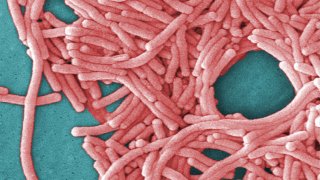
San Diego State University closed its Exercise and Nutritional Sciences building Monday as it investigates a reported case of Legionnaires' disease in a "campus community member."
It is unknown where the individual was exposed to Legionella bacteria but "in an abundance of caution, the university is closing the ENS building to perform testing. All students, faculty, staff and visitors must avoid the building until testing is completed and it is cleared for reentry." It was also unclear whether the
Legionella can be found naturally in freshwater but can also grow and spread in human-made water systems like hot tubs, hot water tanks, decorative fountains and more complex water systems, according to the California Department of Public Health (CDPH). The university's Environmental Health and Safety team was working with the county's Health & Human Services Agency to investigate the case and to identify and confirm the potential source, according to the university.
Get San Diego local news, weather forecasts, sports and lifestyle stories to your inbox. Sign up for NBC San Diego newsletters.
According to the university, the patient is away from campus and recovering. The CDPH says Legionnaires’ disease is severe and often requires hospitalization, though it can often be treated with antibiotics.
Symptoms of the disease also known as Legionella pneumonia include cough, fever, shortness of breath, fever, chills, headaches, muscle aches, nausea, vomiting, diarrhea, and confusion, according to the California Department if Public Health (CDPH).
Only the one case has been reported, and no connection to the campus has been established, but the university is taking extra precautions given the severity of the disease, officials said.
University officials reminded students, staff and faculty to not come to campus while ill and if diagnosed with Legionnaire's, report the case to the campus by using the Health Advisories Form. More information is on the Health Advisories website.
Students were urged to contact instructors with questions regarding courses to inquire about whether the class is canceled or being moved to online this week.
Faculty were asked -- in consultation with the dean, department chair or school director -- to contact students about plans for classes, whether the classes are canceled or moved online.



